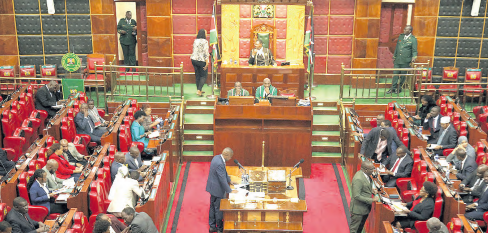
By VERA BWIRE
There is a lot of finger-pointing in the country right now on whether the impeachment was right or wrong, whether the public participation process went well, and if public participation was necessary in the first place to remove Deputy President Gachagua.
Our policy makers have set the agenda, and the agenda is Gachagua, and all we have to do as the electorate is sit and watch as events unfold.
Many many like me are waiting for the dossier the DP or former DP will unleash once things go completely south, but that is a story that will come later. Now that we citizens, who are the ultimate givers of power in our representative democracy, remain behind to watch, we need to ask ourselves many questions.
To start with, was the public participation process that we took part in with limited data presented us, in the way citizens know best, a proper example of broad public input? The way the citizens know best is to talk about how the voting patterns were, per region, broadcast through the media.
But nothing substantial yet. So we are still waiting. The Honourable Millie Odhiambo, during the impeachment session on Tuesday in the ‘August’ House, cited the issues and hindrances to a successful public participation process that were encountered during the impeachment of the DP.
To summarise, they were: political interference, violent disruption, incomplete filled-in forms, low turnout, some instances of public expectation for money, late submission of forms, pressure to declare results prematurely by the public and instances of threats to moderators in some places.
These gaps that were encountered in public participation process would make many people wonder whether it was a fair process.
Accountability is still shaky and this still makes us as citizens almost passive recipients of policy. Why? Because at the end of the day, the true verifiable statistics on the impeachment of DP Gachagua, would only authoritatively be said to be from the votes that took place in Parliament, where 281 MPs voted in favour of the motion, while 44 voted against.
One MP abstained. In my view, policy makers conducted themselves with the respect and decorum we as citizens expected, had sober debates and they voted, and what’s done is done, for now. In the meantime, the gaps in public participation remain, and it remains a factor that is required constitutionally.
According to Kenya Law, 2015, consultation in the process of policy-making is critical. The idea here is that problems to be addressed or opportunities to be embraced may be interrelated, thus requiring solutions and input of various State and non-state actors.
Challenges commonly cited in public participation are that it is a costly process. Public participation, to be executed catering for the needs of the urban and rural electorate, would mean almost mini elections, most of the time, which would be costly.
If modern digital means are to be considered, it would then mean having active advocacy and civic lessons on how to submit views online, and ensure people have the necessary devices and infrastructure, which would be costly as well. It also cannot be denied that parliaments are political institutions, and some parliamentarians, can act as gatekeepers of public engagement processes.
Our policy makers also have other gatekeepers, thus multiple gatekeepers of gatekeepers. Some controversial people we saw, like Morara Kebaso, were barred from airing their views by gatekeepers of gatekeepers.
Challenges the Honourable Odhiambo Millie citedare common to most parliaments, which are new to public participation.
The key is in looking for the most sustainable and effective mechanism to engage the most people in the most open and verifiable manner. And those mechanism are there.
The writer is a Democracy Support Researcher and Scholar, [email protected]












